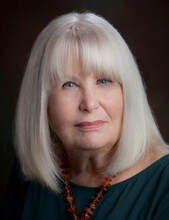My local newspaper asked me to write an op/ed piece about the Ukrainian invasion and, to launch this conversation, I thought I would share it with you: Russian President Vladimir Putin has launched an invasion to pummel Russia’s sister republic Ukraine into submission. We are stunned at the depth of Putin’s naked aggression — but we shouldn’t be surprised. Putin was plucked from the shadows of the KGB to be president of Russia in 2000 when the Soviet Union wasn’t yet cold in its grave. Boris Yeltsin had presided over Russia’s first post-Soviet years as an open society and nascent democracy, but his hand-picked successor had other plans for the planet’s largest country. Early on, he described the fall of the Soviet Union as the 20th Century’s greatest geopolitical catastrophe. He whipped up a frenzy of hate around Mikhail Gorbachev for surrendering the political and military power of the USSR and boasted that he alone could restore Russia to the heights of power. Over the past two decades, he’s managed to whittle away at everything open and democratic that he inherited and to sculpt a repressive authoritarian Russia in the image of the Soviet Union. The resurrection would be nearly complete — except for the absence of the 14 other Soviet republics which became independent states when the USSR dissolved in 1991. Sovereign states, I might add, most of which don’t share Putin’s global vision of Russia restored to glory. So why are those missing republics such a headache to Putin? Take a close look at a map of the western edge of Russia. All those countries that climb from the Caucasus in the south to the Baltics in the north — Georgia, Ukraine, Belarus, Lithuania, Latvia and Estonia — served as a buffer between the USSR and the West (with a capital W). And it was from the West that the greatest political and military threats to Russia have come. In 1812, it was Napoleon Bonaparte, whose troops actually occupied the city of Moscow. In 1942, it was the Nazis who stormed onto Russian soil only to be stopped at Stalingrad, site of perhaps the bloodiest battle of the Great Patriotic War. (Putin recalled this moment of Soviet greatness in his invasion speech on Thursday, describing the leaders of Ukraine as “neo-Nazis.”) The West became the nemesis of every Soviet leader. At the end of World War II, the Iron Curtain cleaved the continent in two and extended the buffer to include the entire Soviet Bloc from Berlin east to Russia itself. Then Gorbachev let it all get away when he let the Berlin Wall fall without a fight. In two short years the USSR was gone as well. And what of those buffer republics that got away? Latvia, Lithuania and Estonia, the last to be forcibly absorbed into the Soviet Union, scrubbed themselves clean of all the Russification they had had to endure and rushed into the open arms of NATO, the West’s military alliance. Georgia walked a careful path between east and west and still got itself into a bloody encounter with Russia in 2008. Ukraine tapdanced between leaders who did Putin’s bidding and those who maintained a strategic distance, but it still suffered the indignity of Russia seizing Crimea eight years ago. The one outlier has been Belarus with its thug Alexander Lukashenko wielding a heavy hand in Europe’s last autocracy. Lukashenko is snug in bed with Putin, opening Belarus to Russian tanks and missiles for “military exercises.” At the moment, it seems pretty clear that Putin sees subjugating and swallowing Ukraine, the largest country in Europe, as his path to restoring Soviet glory and re-establishing his buffer to the West. Snatching the Crimea was just to test the waters, to see how much NATO and the U.S. cared. Apparently, not enough. But this time NATO and the U.S. have forged a remarkably tight coalition to punish Putin for the invasion of Ukraine, but that will offer little solace to the people of Ukraine — most of whom have family members in Russia — who will suffer to satisfy Putin’s taste for glory and grandeur. Those thousands of Russians marching and chanting “No to war!” in Moscow and St. Petersburg testify that Putin may have overplayed his hand this time. Millions more are huddled at home, worrying that they will pay a substantial price in blood and treasure for Putin’s folly. Michelle Carter is the former managing editor of the San Mateo Times. Throughout 1995, she travelled across the 11 time zones of the world’s largest country as the U.S. Information Agency’s Journalist-in-Residence in Russia. She is the author of two books, From Under the Russian Snow (Bedazzled Ink Publishers, 2017) and Children of Chernobyl: Raising Hope From the Ashes (Augsburg, 1993).
0 Comments
|
Bedazzled Ink AuthorsBlog posts from our authors. Archives
January 2023
Categories
All
|
Books & Imprints |
Information |
Contact |
Proudly powered by Weebly

 RSS Feed
RSS Feed